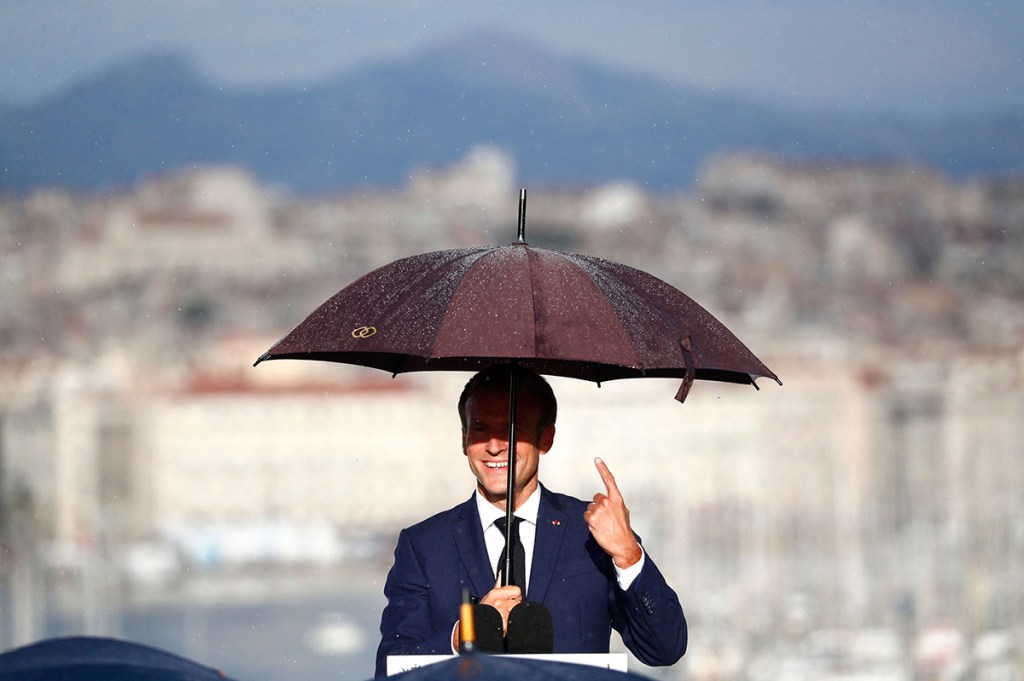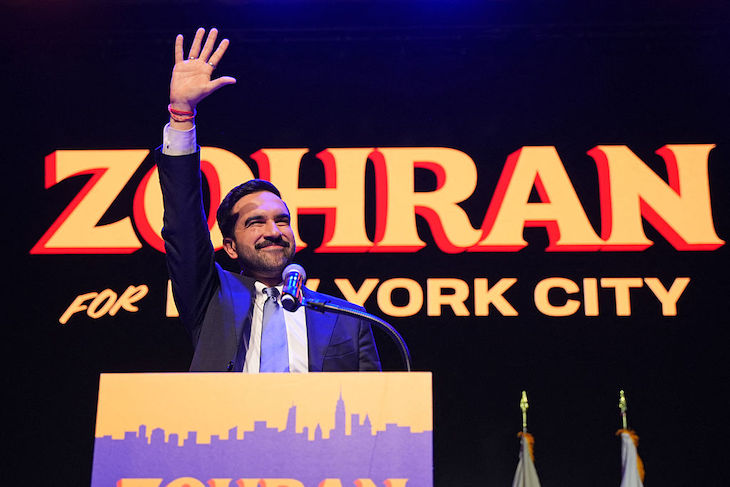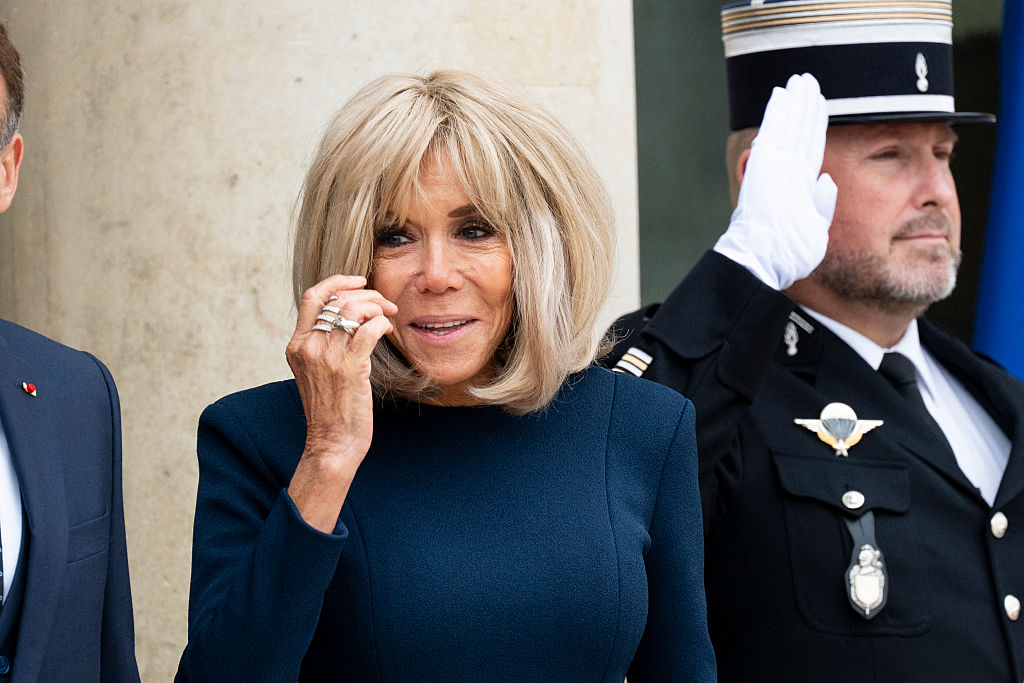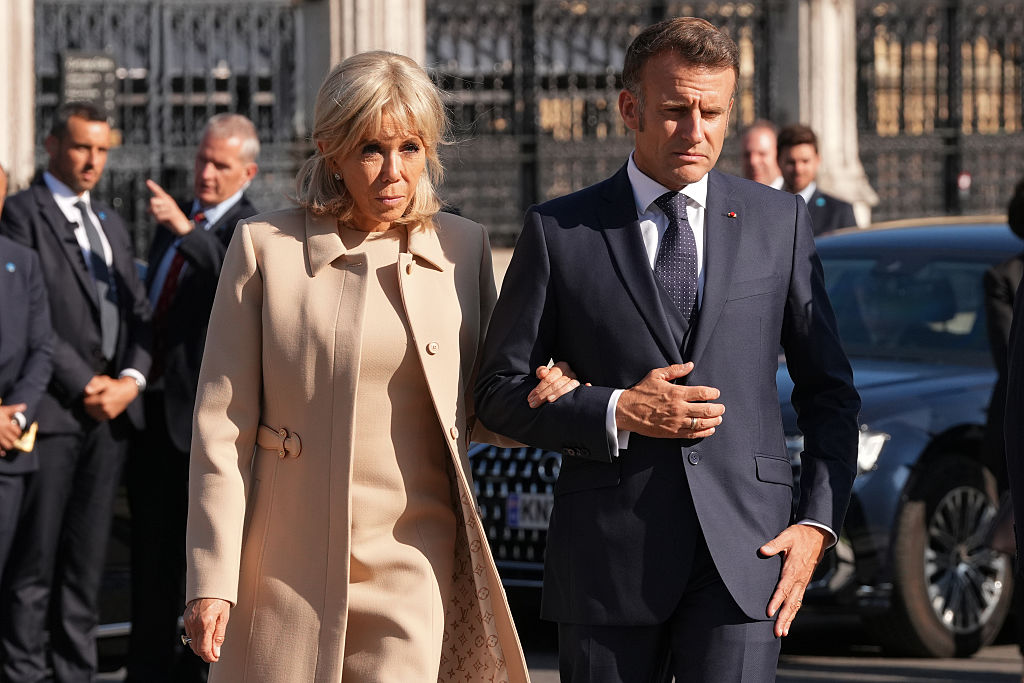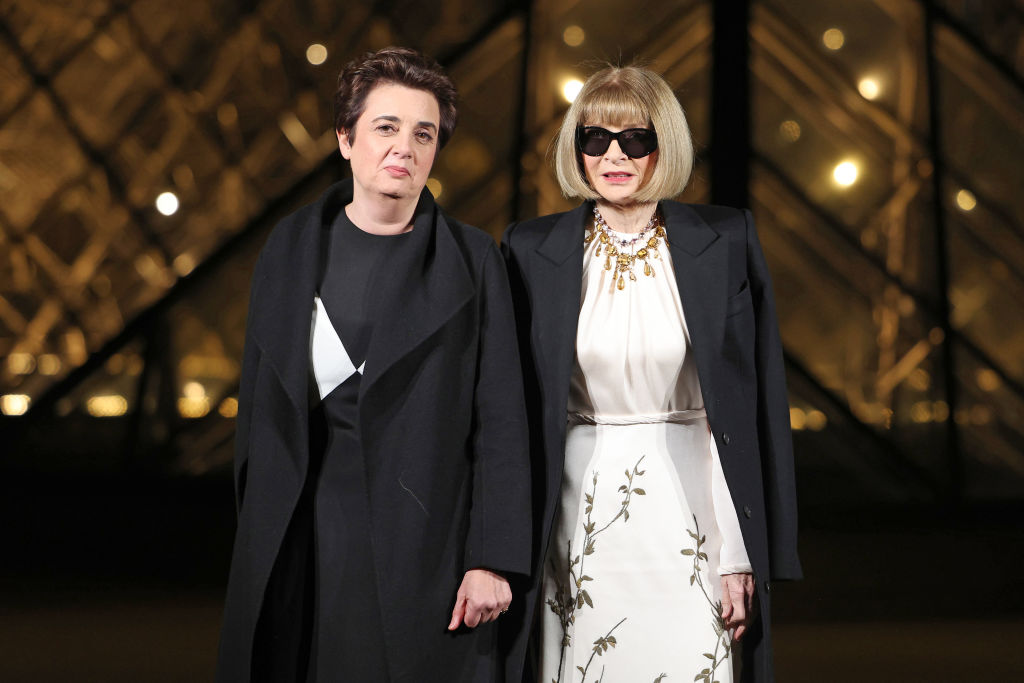At the beginning of the pandemic, I advanced here the theory that having declared war on COVID, the virus could be the undoing of Emmanuel Macron’s hopes for second term as president of France. Was I right or wrong? I am beginning to suspect the latter.
It’s true Macron has been a pitiful president. There’s a chasm between his extravagant promises and measurable performance. He declared French scientists to be the best in the world. They have yet to come up with an approved vaccine. He put his faith in the European Union to organize a supply of vaccines for Europe, only to see its efforts result in months of delays, even as countries outside the union, including the United Kingdom, forged ahead.
The president’s incoherent bouquet of non-medical interventions descended into farce and criminalization of everyday life. It became necessary to complete a ‘derogation’ form to leave one’s residence. There were curfews. Police flew drones over beaches to catch people sitting down. It was announced that masks were useless, then it became an infraction for pharmacies to sell them. Then it became a crime not to wear one. Absurdistan.
Today, hundreds of thousands of demonstrators are taking weekly to the streets to protest Macron’s pass sanitaire, a health passport without which one cannot lawfully drink a coffee in a café, visit a shopping center or board an intercity train or a plane. The virus remains unconquered. A fall lockdown looms. If this has been a war, Macron appears defeated.
COVID is not the only metric by which voters might measure Macron’s record. As the president’s three-day visit to Marseille last week vividly demonstrated, France’s law and order problems aren’t responsive to his torrent of announcements and interminable discourses. Macron pledged to strengthen a police force overwhelmed by gang violence and ‘reinvent’ schools that are on their knees. He and his entourage were booed wherever they went.
Unemployment remains close to 10 percent and much higher among the young. The sclerotic national education system is failing. Success in the once demanding baccalaureate exams has become almost automatic with a pass rate this year of 94 percent.
Yet just over 200 days from the first round of next year’s election, Macron’s opposition is in a worse state than the president himself. The once formidable Parti Socialiste is a shambles. Anne Hidalgo, the Paris mayor who has drowned her city in debt and squalor, is its presumed presidential candidate. But even if she can ally with the Greens, a party with minimal support in the country at large, she will be unlikely to win as many votes as her opponent on the farther left, Jean-Luc Mélenchon, a Jeremy Corbyn-like figure who leads a barmy party calling itself La France Insoumise.
Ignoring the usual peloton of nativists, animal rights activists, Catholic originalists and monarchists that will be lucky to achieve more than 5 percent in the first round of the election, it’s the French right that presents the most comforting spectacle for the President.
An inchoate primary process is supposed to produce a candidate for Les Républicains, with its distant Gaullist roots. But conspicuously absent from the field are any candidates with credible credentials. Édouard Philippe, the Républicain prime minister sacked by Macron for being too popular, doesn’t appear interested. Former president Nicolas Sakozy has been convicted of corruption and sentenced to prison, which he has not so far entered. François Fillon, who was supposed to have been his principal rival last time before himself getting indicted, continues to be enmeshed in an engrenage of legal problems.
Michel Barnier, currently being bigged up by the establishment media, seems to be running not for president, but to become the prime minister in a future government of cohabitation. The Brexit negotiator seems to believe he will be the beneficiary of a presidential election that is ultimately won by Macron, followed by the president losing control of the National Assembly as his weird République En Marche! party collapses. Xavier Bertrand, president of the Hauts-de-France region, might be the party’s best hope, but he claims to no longer be a Républicain, knowing he’ll lose in a primary and refuses to participate. He will stand in the first round regardless. The center-right has atomized.
To the right of Les Républicains is the unelectable and dense Marine Le Pen, who lost decisively to Macron five years ago and to François Hollande before him. She remains determined to carry on. She in turn faces opposition from Éric Zemmour, the Tucker Carlson-like star of CNews, a news channel that is as close as France gets to Fox. Possibly he could overwhelm her in the first round, but more likely will merely divide the right still further. Robert Ménard, the mayor of Béziers, has invited the two of them to dinner to explore a possible alliance. Le Pen is certainly Macron’s preferred opponent in the second round and the polls suggest she could be. But does it even matter who his opponent will be?
It is an irony that the deus ex machina that might have finally finished off Macron, COVID-19, might now save him. The epidemic has concentrated unprecedented power in the Elysée. Bizarrely, confinements, attestations de déplacements dérogatoires, mask mandates and health passports have proven rather popular.
As in Britain, Germany, Australia and beyond, many voters seem rather comfortable being infantilized. They’re visible everywhere, wearing masks as they drive alone in their cars, posting angry screeds attacking supposed anti-vaxxers on Facebook and Twitter and below the line on newspaper comments sections. As winter approaches and the efficacy of vaccines starts to be questioned, new lockdowns loom. And Macron is getting up to 50 percent approval ratings in some polls. A curious number since only half this number profess themselves ready to vote for him.
And the virus, paradoxically, appears to be his friend. No mainstream opposition politician has dared to fundamentally question the government’s strategies. If thousands have demonstrated, millions have not. Macron and his team demonize objectors in language taken from the playbook of Australian prime minister Scott Morrison. In an interview with Le Parisien, the government spokesman recently called protesters a ‘capricious and defeatist fringe’. In the English-speaking world, there seem to be considerable political rewards from the most liberticidal policies. This may also be true in France.
It’s vaguely possible that Éric Zemmour might surpass Le Pen to confront Macron and vaguely possible he could give Macron a hard time in the second round, but he’s going to have to raise his game beyond the evils of communitarianism and declinism. With the media mostly in Macron’s corner, Twitter and Facebook nakedly censored and some large number of the French terrified by the virus and change itself, Macron is betting that his compatriots will follow the advice of another notable Frenchman, turned master of English, Hillaire Belloc:
‘And always keep a-hold of Nurse
For fear of finding something worse.’
Far from defeating Macron, COVID might still save him.
This article was originally published on The Spectator’s UK website.



